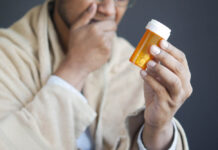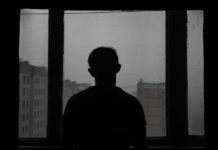Recent meta-analyses of antidepressant clinical trials have revealed that up to 82% of the effects associated with the drugs may be attributed to placebo and non-medication factors. A new study examined the attitudes of psychiatrists toward these non-pharmacologic factors and found a large discrepancy between their beliefs and the empirical evidence.
The research, led by Dr. Sagar Vijapura at Brigham and Women’s Hospital, surveyed 101 staff psychiatrists and 28 training Psychiatrists in Boston, MA. The survey asked the physicians to assess their perceived impact of the active pharmacologic components of antidepressant medications in clinical practice versus the non-medication, placebo, effects of the treatment.
The researchers summarized their results:
The medians for clinician-perceived response rates (54 %) and remission rates (33 %) were in agreement with published rates. The reported median of the what portion of clinical outcomes is believed to be due to placebo effects (26 %) was numerically lower than suggested by literature. The contribution of the active ingredients of medications was perceived to be significantly higher than the contribution of patient characteristics and clinician characteristics. A longer time since graduation from medical school was significantly associated with higher belief in the effect of the active ingredients of antidepressant medications and with less perceived importance of placebo effects.
They conclude:
These findings suggest a discrepancy between empirical evidence and psychiatrists’ beliefs on the impact of placebo effects on clinical outcomes. Educating antidepressant prescribers about the evidence based on psychosocial mediators of placebo effects’ contribution to outcome may represent a promising strategy for improving clinical outcomes.
*
Vijapura, S., Laferton, J. A., Mintz, D., Kaptchuk, T. J., & Wolfe, D. (2015). Psychiatrists’ Attitudes Toward Non-Pharmacologic Factors Within the Context of Antidepressant Pharmacotherapy. Academic Psychiatry, 1-7. (Full Text)















“A new study examined the attitudes of psychiatrists toward these non-pharmacologic factors and found a large discrepancy between their beliefs and the empirical evidence … Educating antidepressant prescribers about the evidence based on psychosocial mediators of placebo effects’ contribution to outcome may represent a promising strategy for improving clinical outcomes.”
Yes, it would be wise to properly educate doctors about the actual effects of the psychiatric drugs, since dealing with psychiatrists or mainstream doctors who are completely deluded about the efficacy and “side effects” of these drugs, does result in a lot of iatrogenesis. And, in general, leaves one understanding that it is, in fact, the doctors who are delusional, not their patients. And, of course, it is the psychiatrists who teach us to disrespect the delusional people in our society, which is seemingly way too many within today’s mainstream medical profession now.
Strikes me the psycho / pharmaceutical leaders’ misinformation fest has created an enormous, albeit profitable, massive iatrogenesis problem within our society. “First and foremost, do no harm,” doctors. That was actually your promise to society, it’s a shame you’ve failed to keep that promise. But it is so easy and profitable to defame, tranquilize, and murder children, isn’t it? But, I, for one don’t have any respect for people who behave in such a deplorable manner.
Report comment
This is not surprising; but disturbing nonetheless. I’ve read several books, most notably Kirsch’s, arguing that placebo affects make up between 70-90% of the supposed “effectiveness” of antidepressants in reducing symptoms. Without awareness of these studies, and bombarded by distorted Big Pharma propaganda about the effectiveness of drugs, psychiatrists become deluded into believing that the 70-90% (or most of it) is not a placebo effect but rather the actual effect of the pill.
Another reason not to visit psychiatrists if at all avoidable… since they cannot even clearly perceive the effectiveness of their own primary intervention.
Report comment
These toxic drugs that can cause people to become manic and then get labeled as bi-polar are prescribed by GP’s more often than psychiatrists. GP’s are handing them out like candy. I got my first SSRI from my GP and not from any psychiatrist. So, even if people do stay clear of psychiatrists they better also watch their GPs too.
Report comment
Oh well…what can be said of (most) psychiatrists is that they are consistently and predictably delusional…and decidedly dangerous because they have the power to force others into complying with their delusions.
Not good.
Report comment
Since 80% of all psych meds are prescribed by non psychiatrists, avoiding one does not guarantee a patient will avoid the psych med trap. In fact, with the “coordinated care” movement in many PCP’s offices, my guess is the prescription of psych meds will increase.
And even if there isn’t a coordinated care movement, many PCPs are doing routine screening for depression. Obviously, folks on this board are aware of these traps but many people, sadly are not.
Report comment
It’s not just psychiatry. As detailed in my prior posts, the current heroin epidemic is attributable to OxyContin prescriptions from physicians. (When the Oxy becomes too expensive, people switch to heroin.) During the drug company campaign to convince doctors that people in pain could not be addicted to opiates, they cited Jink and Porter. No one checked on Jink and Porter which, in fact, was a one paragraph letter to the editor of New England Journal of Medicine. The level of gullibility has no limits.
Report comment
Yes, it makes you wonder why doctors don’t keep up with what’s happening. They take the word of some corrupt drug company representative sent out to lie to the doctors about the wonderful drugs that they’re peddling.
Report comment
I just wanted to point out that the link which says “Full Text” points only to an abstract. I was really hoping for the full study, but its behind a paywall.
Report comment
If you join Research Gate (it’s free), you can access the full text at this link
https://www.researchgate.net/publication/286510702_Psychiatrists'_Attitudes_Toward_Non-Pharmacologic_Factors_Within_the_Context_of_Antidepressant_Pharmacotherapy .
Research Gate is a good way to get articles that aren’t publicly available for free- has a lot articles uploaded on it already and you can also request full-texts of those that aren’t already there from the authors.
Report comment
Back in the day, psychiatrists relied more on placebo effect. I think that’s insulting and dishonest, though. At an eating disorders facility they handed out stomach pills, an antacid (real smart! ha ha)and one called Simethicone, which had years ago been proven completely ineffective. I never took any of them, knowing they would harm my digestive system, giving me worse stomach aches, or do nothing. I’d say 99% of the patients lined up after every single meal. Others lined up for Zyprexa. They were lied to and told it was for sleep.
I stepped back and looked at the line of suckers all standing there, doped up. I asked myself, “‘Should I say something? What if I did?” Then, I figured it would being five years old and telling the neighbor kid there was no such thing as Santa. No one wants to believe it at first. Coming to terms with the lie is like you are going through the Five State of Grief.
Report comment